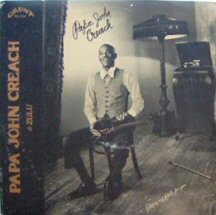| Playing My Fiddle for You | ||||
|---|---|---|---|---|
 | ||||
| Studio album by | ||||
| Released | February 1, 1974 | |||
| Recorded | 1974 at RCA, Hollywood, California | |||
| Genre | ||||
| Label | Grunt/RCA | |||
| Producer | Al Schmitt | |||
| Papa John Creach chronology | ||||
| ||||
| Review scores | |
|---|---|
| Source | Rating |
| Allmusic | |
Playing My Fiddle for You is Papa John Creach's third solo album and his last with Grunt Records. All the songs on the album are played with the supporting band Zulu, featuring Kevin Moore who would later be known as Keb' Mo'. After this album, the supporting band changed their name to Midnight Sun.